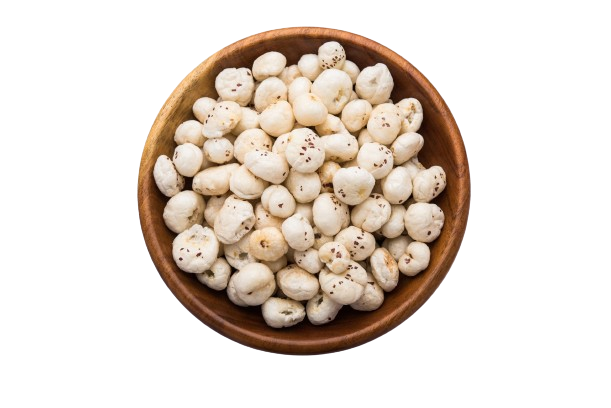

· By Vishal Singh
Makhana and Diabetes: Managing Blood Sugar with Natural Food
Makhana, also known as fox nuts or lotus seeds, has garnered attention in recent years for its numerous health benefits, particularly for individuals managing diabetes. This ancient superfood, rooted in traditional Indian medicine, is now being recognized globally for its potential to help regulate blood sugar levels naturally. Incorporating makhana into a diabetic diet can provide a nutritious, low-calorie, and high-fiber option that supports overall health and well-being.
One of the key attributes of makhana is its low glycemic index (GI). Foods with a low GI are digested and absorbed more slowly, resulting in a gradual rise in blood sugar levels rather than a sudden spike. This characteristic makes makhana an ideal snack for diabetics, who need to maintain stable blood sugar levels. Consuming low-GI foods can help prevent the peaks and troughs in blood glucose that can be harmful to diabetics over time. Makhana’s ability to release sugar slowly into the bloodstream helps in better glucose management, reducing the risk of hyperglycemia.
Moreover, makhana is rich in essential nutrients that are beneficial for overall health. It is an excellent source of protein, which is crucial for muscle repair and maintenance. For diabetics, maintaining muscle mass is particularly important as it aids in better glucose utilization by the body. Additionally, makhana is packed with magnesium, potassium, and phosphorus, minerals that support heart health and help in the regulation of blood pressure. This is particularly relevant for diabetics, who are at a higher risk of cardiovascular diseases.
The high fiber content in makhana is another significant benefit. Fiber plays a vital role in managing diabetes as it slows down the digestion process, leading to a more gradual release of sugar into the bloodstream. A diet high in fiber can also improve gut health, reduce cholesterol levels, and aid in weight management, all of which are critical for diabetics. Consuming makhana regularly can help individuals feel fuller for longer periods, reducing the likelihood of overeating and helping with weight control.
Incorporating makhana into a diabetic diet is simple and versatile. These seeds can be roasted and seasoned with herbs and spices for a crunchy, healthy snack alternative to processed foods. They can also be added to soups, salads, and curries, or even ground into flour to be used in baking. The neutral taste of makhana allows it to blend well with various dishes, making it easy to include in daily meals without much hassle.
While makhana offers numerous benefits, it is essential for diabetics to consume it as part of a balanced diet. Moderation is key, as with any food, to ensure it contributes positively to overall health without causing any adverse effects. Consulting with a healthcare provider or a nutritionist can help tailor its consumption to individual dietary needs and health goals.
In conclusion, makhana stands out as a valuable addition to the diet of individuals managing diabetes. Its low glycemic index, high nutrient content, and versatile culinary applications make it an excellent choice for maintaining stable blood sugar levels and supporting overall health. By integrating makhana into their diets, diabetics can enjoy a natural and effective way to help manage their condition while reaping the broader health benefits this super food has to offer.
